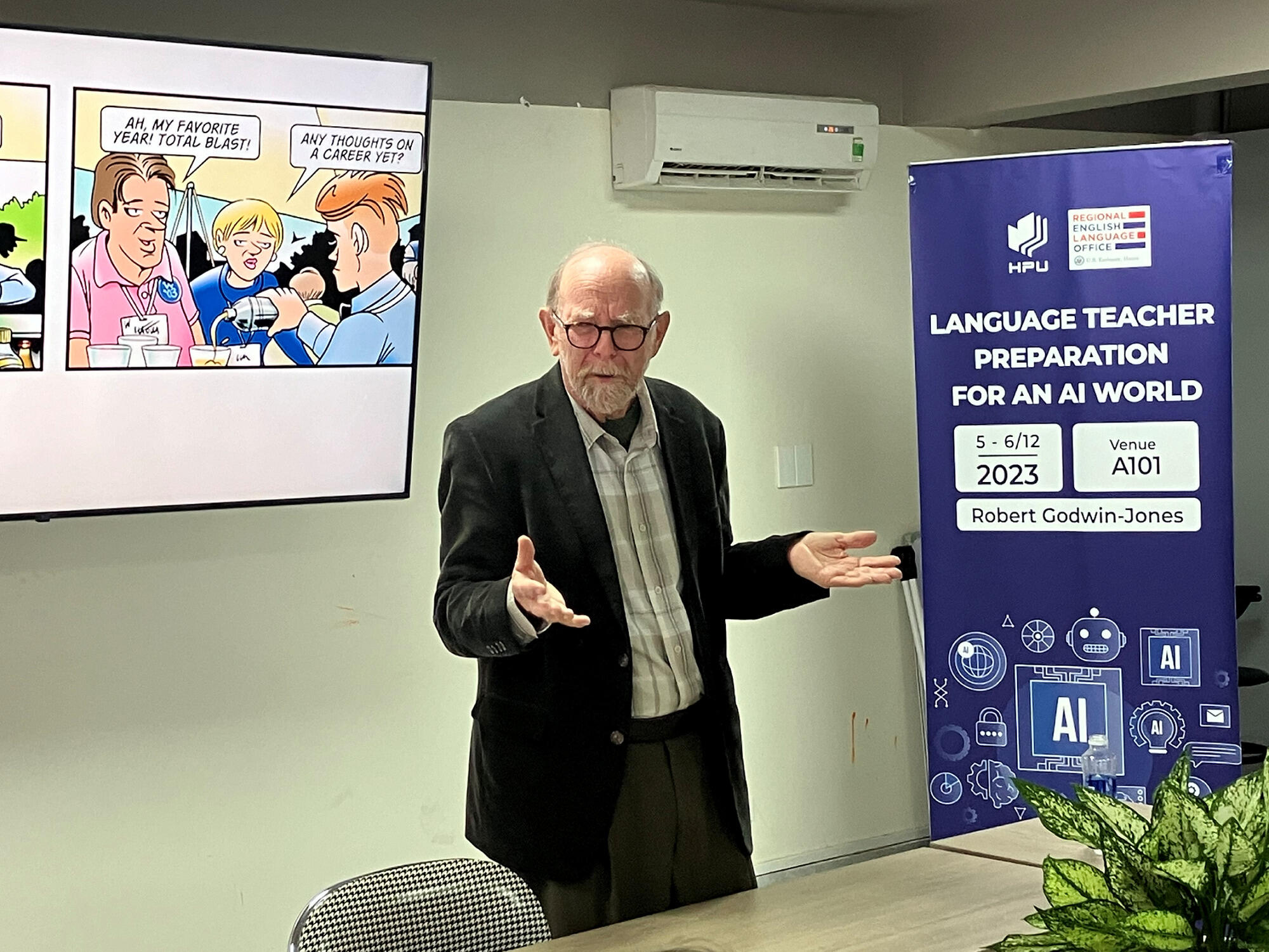
Feb. 14, 2024
In Vietnam, VCU professor shares insight into how artificial intelligence can support teaching languages
Share this story
Instead of sitting down for a traditional Thanksgiving meal this past November, Robert Godwin-Jones headed to Vietnam. Tapped by the State Department, the Virginia Commonwealth University professor served as an English Language Specialist who shared his expertise in how artificial intelligence can enhance the teaching of languages.
“I’ve been interested in AI since it has exploded in availability, interest and capabilities,” said Godwin-Jones, Ph.D., a professor and languages specialist in VCU’s School of World Studies in the College of Humanities and Sciences.
The State Department contacted him in October about going to Vietnam for three weeks to teach two-day workshops on how to integrate AI into language teaching. He led sessions at three universities— the University of Economics in Ho Chi Minh City, Hai Phong University of Management and Technology and the Ha Long University.
Class participants included English teachers at primary, high school and university levels and graduate students aspiring to be teachers. During the workshops, teachers were asked to take examples from their own courses, possibly from their textbooks, and create – with the help of AI programs – lesson plans or learning materials.
“The teachers had mixed feelings,” Godwin-Jones said. “They were nervous about using AI because they thought it would give students the opportunity to cheat.”
To address this, Godwin-Jones demonstrated ways to use AI in responsible and ethical ways.
“I told them to find assignments where AI won’t work, like reporting on a personal experience or an assignment in creative and collaborative writing,” he said. “Eventually they saw that it could be useful in developing teaching material and giving students the ability to try out or rehearse a language.”
AI has been shown to be useful for foreign language learners and teachers in a variety of ways. Among them, it can serve as a conversation partner for practicing the target language in written or spoken form.
“The mobile app ChatGPT, for example, has voice capabilities in multiple languages, with very human-sounding synthetic voices able to understand and speak on an endless variety of topics,” Godwin-Jones said. “It can be instructed to use the language at a particular level of proficiency, matching that of the learner.”
AI can handle the mechanics of language but not “the nuances of social language use,” he added.
“Human language is based on repeated patterns and regularities, which is why machine learning has been so successful. But human behavior and social language use are unpredictable. We adjust our language use on the fly to fit the conversational context,” Godwin-Jones said. “Developing interactional competence is a major component of language learning, and it is achieved through repeated social interactions.”
Albeit a valuable resource in the classroom, AI tools “are not an effective alternative to human teachers,” he said.
Godwin-Jones added that he enjoyed his time in Vietnam.
“It was my first time there. It was a great experience culturally, and the people were quite friendly,” he said. “The best thing for me in the whole process was socializing with the teachers. I learned about life in Vietnam. I felt very welcomed.”
Subscribe to VCU News
Subscribe to VCU News at newsletter.vcu.edu and receive a selection of stories, videos, photos, news clips and event listings in your inbox.







